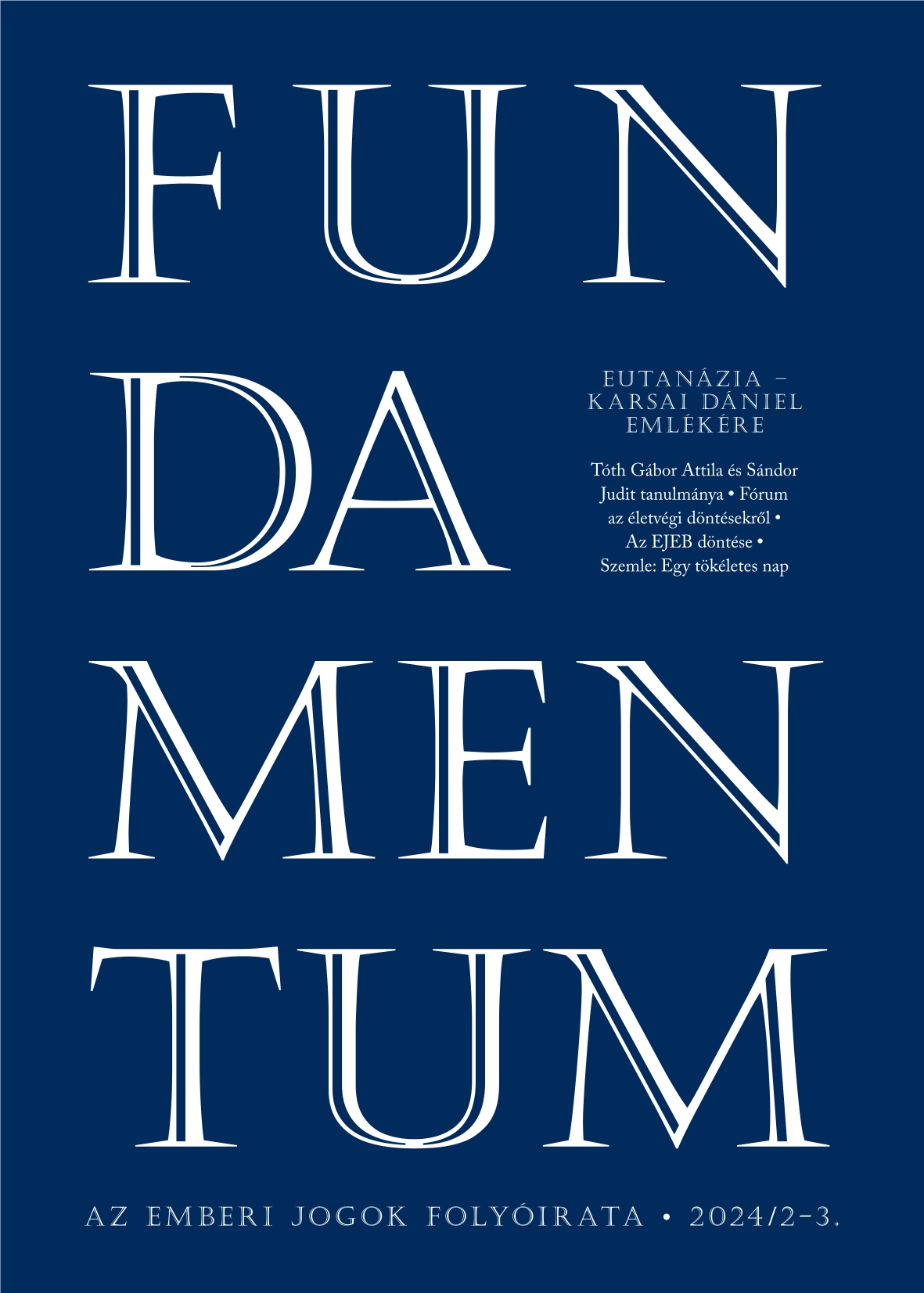Eutanázia és egyenlő méltóság
DOI:
https://doi.org/10.70538/fundamentum.2024.2-3.2Keywords:
euthanasia, human dignity, holiness of life, personal autonomy, pretty case, karsai caseAbstract
In his study, Gábor Attila Tóth presents the consequentialist and deontological ethical principles for and against voluntary euthanasia, which influence legislative and judicial decision-making worldwide. While the principles of personal autonomy and quality of life are in favour of euthanasia, the sanctity of life and slippery slope arguments call for a ban on euthanasia, or, in a moderate version, for strict restrictions. The study addresses the problem of scarce resources, which the author argues is inseparable from euthanasia: prohibition and poor health conditions may lead to the most serious violations of human dignity. A case study demonstrates that the ECtHR’s reasoning that the state’s duty to protect life justifies a ban on euthanasia in Hungary is flawed. On the contrary, by depriving basic health resources, the state is failing to fulfil its obligation to actively ensure fundamental rights, while denying individual fundamental rights.


